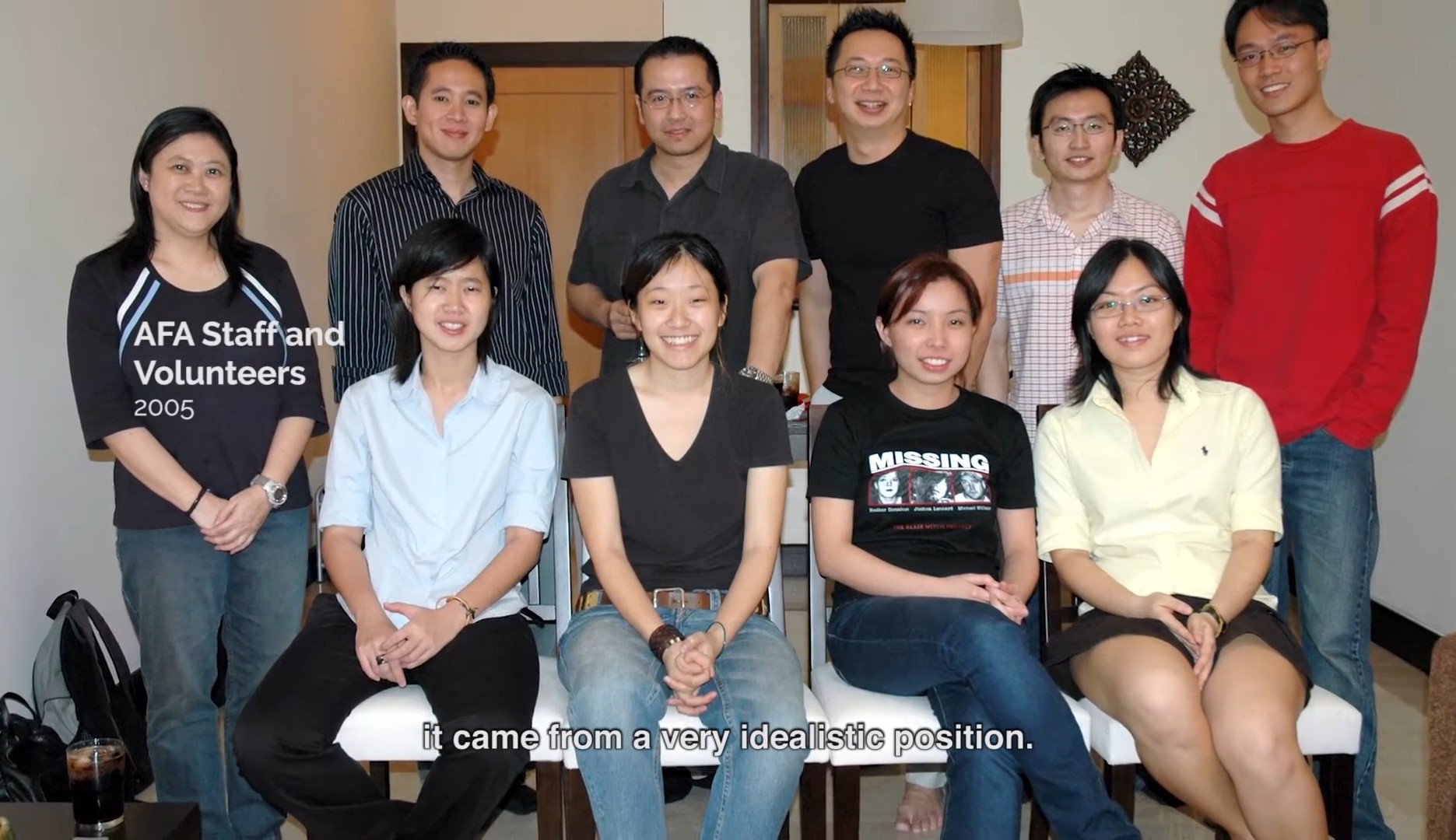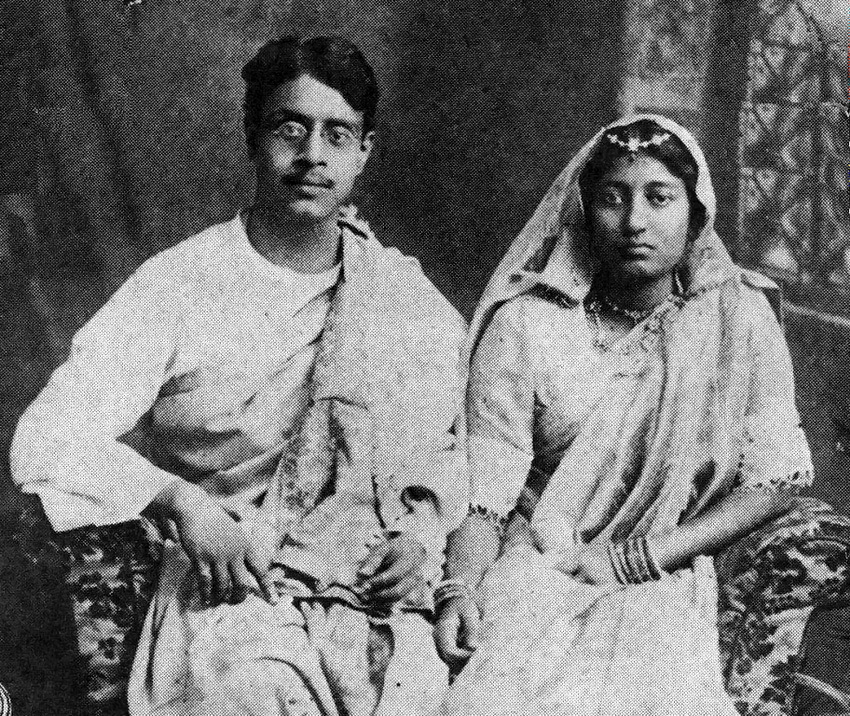|
Asian Film Archive (AFA)
The Asian Film Archive (AFA) is a non-governmental organisation in Singapore that preserves the film heritage of Asian Cinema. The archive is located at the National Library Building along Victoria Street, a five-minute walk from Bugis MRT station (East-West Line). History Founded in 2005, AFA preserves Asian films to encourage scholarly research on film, and to promote a wider critical appreciation of this art form. The archive has collected more than 2,000 titles, with a focus on classic Asian films and contemporary independent works from Southeast Asia. The Archive's outreach programmes encourage film literacy and find new audiences for films in its collection. The Asian Film Archive is an affiliate of the International Federation of Film Archives (FIAF) and the Southeast Asia-Pacific Audiovisual Archive Association (SEAPAVAA). Amongst its international advisors are Ray Edmondson, David Bordwell and Apichatpong Weerasethakul. Renowned scholar, Patricia Zimmermann described ... [...More Info...] [...Related Items...] OR: [Wikipedia] [Google] [Baidu] |
Glen Goei
Glen Goei (; born 22 December 1962) is one of Singapore's leading film and theatre directors. His broad ranging body of work embraces the full gamut of the performing and visual arts and includes film, theatre, musicals, large scale shows, World Expos, dance, music, and architectural design. Glen Goei was the artistic director of Mu-Lan Arts in London from 1990 to 1998. It was the first Asian theatre company to be established in the United Kingdom. He is currently the Associate Artistic Director of the Singaporean theatre company, W!LD RICE. Goei's film ''Forever Fever'' was the first Singapore film to achieve a worldwide commercial release. The film was distributed in America and the UK by Miramax, which then signed him on an exclusive three-picture deal. In 1994, he received the National Youth Award for his contribution to the arts from Prime Minister Goh Chok Tong. Early life Born on 22 December 1962 and the youngest of seven children, Goei attended the Anglo Chinese Sch ... [...More Info...] [...Related Items...] OR: [Wikipedia] [Google] [Baidu] |
The Projector
The Projector is a Singaporean independent cinema founded in 2014 in Singapore, specializing in arts-house films. It has two locations, including one at the Golden Mile Tower and one at Riverside Point. History The Projector was founded in 2014 by Karen Tan, Sharon Tan and Blaise Trigg-Smith, under their company Pocket Projects. Sharon Tan was the general manager. The venue was originally founded as Golden Theatre in 1973, the biggest cinema at the time in Singapore and Malaysia, with a single hall that sat up to 1,500 people. In 1990s, the venue was split into 3 halls. Eventually in 2014, Golden Theatre retained the largest 1,000-seats hall, while The Projector took over the smaller halls. In 2019, Sharon Tan left the cinema and Prashant Somosundram took over as general manager. During the COVID-19 Pandemic The COVID-19 pandemic, also known as the coronavirus pandemic, is an ongoing global pandemic of coronavirus disease 2019 (COVID-19) caused by severe acute resp ... [...More Info...] [...Related Items...] OR: [Wikipedia] [Google] [Baidu] |
Singapore Shorts
Singapore (), officially the Republic of Singapore, is a sovereign island country and city-state in maritime Southeast Asia. It lies about one degree of latitude () north of the equator, off the southern tip of the Malay Peninsula, bordering the Strait of Malacca to the west, the Singapore Strait to the south, the South China Sea to the east, and the Straits of Johor to the north. The country's territory is composed of one main island, 63 satellite islands and islets, and one outlying islet; the combined area of these has increased by 25% since the country's independence as a result of extensive land reclamation projects. It has the third highest population density in the world. With a multicultural population and recognising the need to respect cultural identities of the major ethnic groups within the nation, Singapore has four official languages: English, Malay, Mandarin, and Tamil. English is the lingua franca and numerous public services are available only in English. ... [...More Info...] [...Related Items...] OR: [Wikipedia] [Google] [Baidu] |
State Of Motion 2019
State may refer to: Arts, entertainment, and media Literature * ''State Magazine'', a monthly magazine published by the U.S. Department of State * ''The State'' (newspaper), a daily newspaper in Columbia, South Carolina, United States * ''Our State'', a monthly magazine published in North Carolina and formerly called ''The State'' * The State (Larry Niven), a fictional future government in three novels by Larry Niven Music Groups and labels * States Records, an American record label * The State (band), Australian band previously known as the Cutters Albums * ''State'' (album), a 2013 album by Todd Rundgren * ''States'' (album), a 2013 album by the Paper Kites * ''States'', a 1991 album by Klinik * ''The State'' (album), a 1999 album by Nickelback Television * ''The State'' (American TV series), 1993 * ''The State'' (British TV series), 2017 Other * The State (comedy troupe), an American comedy troupe Law and politics * State (polity), a centralized political organizati ... [...More Info...] [...Related Items...] OR: [Wikipedia] [Google] [Baidu] |
Charulata
''Charulata'' (Spelt as ''Cārulatā''; ) is a 1964 Indian drama film written and directed by Satyajit Ray. Based upon the novel '' Nastanirh'' by Rabindranath Tagore, it stars Soumitra Chatterjee, Madhabi Mukherjee and Sailen Mukherjee. The film is considered one of the finest works of Ray. Both the first and the last scenes are critically acclaimed. The first scene, with almost no dialogues shows Charu's loneliness and how she looks at the outside world through the binoculars. In the last scene when Charu and her husband are about to come closer and hold their hands, the screen freezes. This has been described as a beautiful use of freeze frame in cinema. Plot Charulata is based on the story "Nastanirh (the Broken Nest)" by Rabindranath Tagore, set in Calcutta in 1879 (Ray sets the film in 1897). The Bengali Renaissance is at its peak, and India is under British rule. The film revolves around Charulata (Madhabi Mukherjee), the intelligent and beautiful wife of Bhupati (Saile ... [...More Info...] [...Related Items...] OR: [Wikipedia] [Google] [Baidu] |
Satyajit Ray
Satyajit Ray (; 2 May 1921 – 23 April 1992) was an Indian director, screenwriter, documentary filmmaker, author, essayist, lyricist, magazine editor, illustrator, calligrapher, and music composer. One of the greatest auteurs of film-making, Ray is celebrated for works including '' The Apu Trilogy'' (1955–1959), ''The Music Room'' (1958), ''The Big City'' (1963) and '' Charulata'' (1964). Ray was born in Calcutta to nonsense rhyme author Sukumar Ray. Starting his career as a commercial artist, Ray was drawn into independent film-making after meeting French filmmaker Jean Renoir and viewing Vittorio De Sica's Italian neorealist film '' Bicycle Thieves'' (1948) during a visit to London. Ray directed 36 films, including feature films, documentaries and shorts. Ray's first film, '' Pather Panchali'' (1955) won eleven international prizes, including the inaugural Best Human Document award at the 1956 Cannes Film Festival. This film, along with '' Aparajito ... [...More Info...] [...Related Items...] OR: [Wikipedia] [Google] [Baidu] |
A Better Tomorrow
''A Better Tomorrow'' () is a 1986 Hong Kong crime action film directed and co-written by John Woo, and starring Ti Lung, Leslie Cheung and Chow Yun-fat. The film had a profound influence on Hong Kong action cinema, and has been recognised as a landmark film credited with setting the template for the heroic bloodshed genre, with considerable influence on both the Hong Kong film industry and Hollywood. Produced with a tight budget and released with virtually no advertising, ''A Better Tomorrow'' broke Hong Kong's box office record and went on to become a blockbuster in Asia. The film is highly regarded, ranking #2 in the Best 100 Chinese Motion Pictures. Its success led to a sequel, '' A Better Tomorrow II'', also directed by Woo, and '' A Better Tomorrow 3: Love & Death in Saigon'', a prequel directed by Tsui Hark. It has been remade several times. The film was Chow Yun-fat's breakout role and launched him as one of the top superstars in the Hong Kong film industry. C ... [...More Info...] [...Related Items...] OR: [Wikipedia] [Google] [Baidu] |
John Woo
John Woo Yu-Sen SBS (; born September 22, 1946) is a Hong Kong filmmaker, known as a highly-influential figure in the action film genre. He was a pioneer of heroic bloodshed films (a crime action film genre involving Chinese triads) and the gun fu genre in Hong Kong action cinema, before working in Hollywood films. He is known for his highly chaotic "bullet ballet" action sequences, stylized imagery, Mexican standoffs, frequent use of slow motion and allusions to ''wuxia'', film noir and Western cinema. Considered one of the major figures of Hong Kong cinema, Woo has directed several notable action films including '' A Better Tomorrow'' (1986), '' The Killer'' (1989), '' Hard Boiled'' (1992) and '' Red Cliff'' (2008/2009). His Hollywood films include '' Hard Target'' (1993), '' Broken Arrow'' (1996), '' Face/Off'' (1997) and '' Mission: Impossible 2'' (2000). He also created the comic series ''Seven Brothers'', published by Virgin Comics. He is the founder and chairman ... [...More Info...] [...Related Items...] OR: [Wikipedia] [Google] [Baidu] |
Dragon Inn
''Dragon Inn'' (, also known as ''Dragon Gate Inn'') is a 1967 Taiwanese ''wuxia'' film written and directed by King Hu. The film was remade in 1992, as '' New Dragon Gate Inn'', and again in 2011 as '' The Flying Swords of Dragon Gate''. Plot Tsao, the emperor's first eunuch, has successfully bested General Yu, his political opponent. The general was beheaded and his remaining children have been exiled from China. As the children are being escorted to the western border of the Chinese empire, Tsao plots to have the children killed. Tsao's secret police lie in ambush at the desolate Dragon Gate Inn. Martial arts expert Hsiao shows up at the inn, wanting to meet the innkeeper. Unknown to the secret police is that the innkeeper, Wu Ming, was one of the general's lieutenants and has summoned Hsiao to help the children. A brother-sister martial-artist team (children of another Yu lieutenant) also show up to help. These four race to find Yu's children and lead them to safety. Productio ... [...More Info...] [...Related Items...] OR: [Wikipedia] [Google] [Baidu] |
King Hu
Hu Jinquan (29 April 1932 – 14 January 1997), better known as King Hu, was a Chinese film director and actor based in Hong Kong and Taiwan. He is best known for directing various ''wuxia'' films in the 1960s and 1970s, which brought Hong Kong and Taiwanese cinema to new technical and artistic heights. His films ''Come Drink with Me'' (1966), '' Dragon Inn'' (1967), and '' A Touch of Zen'' (1970–1971) inaugurated a new generation of ''wuxia'' films in the late 1960s. Apart from being a film director, Hu was also a screenwriter and set designer. Early life Hu was born in Beijing to a well-established family originating from Handan, Hebei. His grandfather was the governor of Henan in the late Qing Dynasty. His father had studied in Japan and was the owner of the local coal mine. His uncle was a high ranking official in the Republican government. Several of his brothers held high positions in the Communist government. Hu grew up in Beijing as a child. He emigrated to Hong Kong i ... [...More Info...] [...Related Items...] OR: [Wikipedia] [Google] [Baidu] |


